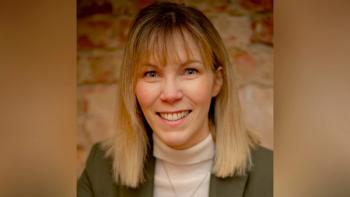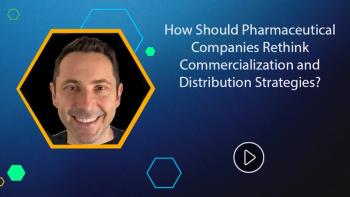
- Pharmaceutical Executive-08-01-2011
- Volume 0
- Issue 0
Employers: Fighting Non-Adherence
A Q&A with Andrew Webber, President and CEO of the National Business Coalition on Health
Employers have long been outside the ring when it comes to fighting non-adherence, but that stance is changing. Andrew Webber, president and CEO of the National Business Coalition on Health, shares his perspective on employers as stakeholders in the adherence space.
Andrew Webber
Pharm Exec: Why should employers pay attention to adherence?
Andrew Webber: A sophisticated employer understands that poor adherence is a waste of dollars, and is a serious risk to worsening of a condition that can lead to additional cost downstream. Smart employers understand that medication adherence needs to be part of a global health management strategy, and are thinking about what role they can play.
PE: What should employers be doing to take a more active role going forward?
AW: Basic employee communications. An employer has a captive audience, many vehicles to communicate to their employees, and established worksite wellness programs.
Next is the value-based benefit design. Particularly for low-income workers, the cost of getting and refilling medications might create an economic barrier to adherence. And so, where we know that a medication for diabetes is an effective intervention strategy to keep people out of the hospital, let's think about knocking down economic barriers, maybe even lowering or waiving copays so that people don't have to decide between sneakers for their children and refilling their medications.
On June 29, M3 USA conducted a poll of 539 US general practitioners to understand their perspective on patient adherence. The below data are the results of the suvey.
The fact is, people do get sick and are chronically ill. And sometimes that's not based on lifestyle; it can be based on things that an individual had nothing to do with, like genetics and family history. For whatever reason, if someone is chronically ill—and this is where a lot of the healthcare costs are for employers—it's in the interest of the employer and the individual to manage that condition. One of the best ways to manage chronic disease, in addition to changing your lifestyle, is to be adherent to effective medications.
Where should primary responsibility for adherence rest?: In your experience, how do patients respond best to education efforts?
We can also create more of an ongoing relationship between the physician and the patient, rather than the seven-minute visit where the doctors say, 'Here's you medication, I'll see you in six months.' There's a greater understanding now in the provider community that the traditional delivery system needs to do a much more effective job to support the patient in being adherent.
If we package all of those things together—education, the right incentive, knocking down cost barriers, coaching and counseling, getting the delivery system to be more supportive of longitudinal relationships—we have a greater probability of moving the needle on this important issue than if we only did one thing.
Average Rxs For New patients In first six Months Of Therapy By Patient Cost Experience
PE: How can employers quantify the ROI of adherence programs that they're implementing?
AW: I think the basic ROI of encouraging medication adherence, and management of chronic disease in particular, is that it reduces ER visits. Keeping people out of the hospital has a huge ROI. If you couple that with indirect health and productivity measures, such as reducing absenteeism, then you're talking about pretty powerful ROI analyses.
PE: How has healthcare reform and the focus on wellness and prevention shifted employers' perspectives on adherence?
AW: I don't think people understand there are many important provisions in healthcare reform that relate to prevention and health promotion. My hope is that with some patience and more time for healthcare reform to roll out with strategies such as ACOs, there will be greater awareness that there are critically important incentives that will transfer the system away from acute care to a system that's focused more on upstream interventions.
PE: What do you think employers can expect from government at the federal and state levels as far as collaboration, cooperation, and information to help with adherence programs?
AW: I'd start with comparative effectiveness research. The first question is whether pharma medications are effective in terms of improving health status and treating illness. So this new federal and societal investment in comparative effectiveness research is foundational to what we're doing.
For another example, we have within the federal reform legislation the creation within CMS of a center for Medicaid/Medicare innovation—a multibillion dollar center that is supposed to be a catalyst for innovation and is supposed to encourage the public and private sector—payers in particular—to get together on aligned strategies, whether it's paying providers differently, advancing ACOs, or working together on standardized measures of provider performance.
I think the government programs have a lot to learn from the private sector and I think the private sector needs to be informed by the federal investments, commitments, and strategies that the public sector programs are putting in place. But we've got to create mechanisms to make that happen.
Articles in this issue
over 14 years ago
Pharmaceutical Executive Digital Edition - August 2011over 14 years ago
Is the 'Emerging Market' a Dated Concept?over 14 years ago
Innovation at Pfizerover 14 years ago
Mind the Gap!over 14 years ago
Giving Press Releases New Legsover 14 years ago
An IOU to Big Pharma Regarding EHRover 14 years ago
Options for Paying for Health—The Right Wayover 14 years ago
The Supremes Shape Pharmaover 14 years ago
Serbia: Ready to Flourishover 14 years ago
Europe in HTA GridlockNewsletter
Lead with insight with the Pharmaceutical Executive newsletter, featuring strategic analysis, leadership trends, and market intelligence for biopharma decision-makers.




